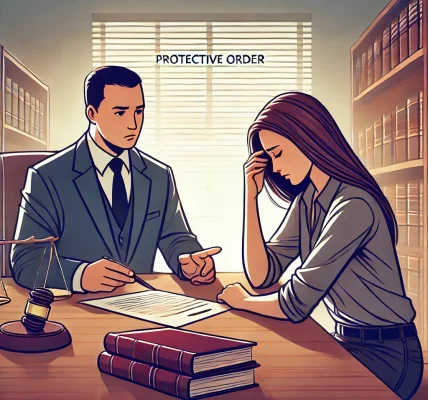Introduction
Infidelity is one of the leading causes of divorce, but how does it impact the legal aspects of a divorce settlement? Many individuals believe that an affair will automatically lead to unfavorable outcomes for the unfaithful spouse. However, the actual impact of adultery varies based on jurisdiction, state laws, and individual case circumstances. In this article, we will explore how infidelity can influence divorce settlements and alimony decisions, ensuring a legally sound perspective without making assumptions that could lead to legal entanglements.
Does Infidelity Affect Divorce Settlements?
Divorce settlements are primarily concerned with the equitable division of assets and liabilities. Most states in the U.S. follow equitable distribution laws, meaning marital property is divided fairly, though not necessarily equally.
Fault vs. No-Fault Divorce States
- No-Fault Divorce States: Most U.S. states allow no-fault divorces, meaning neither party has to prove wrongdoing to file for divorce. In these states, infidelity typically has little to no impact on asset division unless marital funds were misused to finance the affair (discussed below).
- Fault-Based Divorce States: In some states, a spouse can file for divorce based on fault grounds, including adultery. In these cases, a judge may consider infidelity when determining financial settlements.
Dissipation of Marital Assets
One scenario where infidelity significantly impacts divorce settlements is when the unfaithful spouse uses marital assets to support the affair. This is known as dissipation of assets and can include:
- Expensive gifts for a third party (jewelry, vacations, etc.)
- Hotel stays, dining, or entertainment expenses
- Paying rent or bills for an extramarital partner
If dissipation is proven, courts may compensate the innocent spouse by awarding them a larger share of the marital assets.
Infidelity and Alimony: Does It Matter?
Alimony, also known as spousal support, is determined based on factors such as income disparity, length of marriage, and the recipient spouse’s need for financial assistance. While infidelity does not automatically impact alimony awards, it may play a role under certain conditions.
When Infidelity Affects Alimony
- Fault-Based Alimony Awards: In some states, courts consider adultery when awarding alimony. A spouse who committed adultery may receive reduced alimony or be denied support altogether if their infidelity contributed to the marital breakdown.
- Financial Misconduct: If the unfaithful spouse squandered joint finances on their affair, courts might adjust alimony to compensate the wronged spouse.
- Moral Considerations: In rare cases, some judges may use infidelity as a discretionary factor, especially in conservative jurisdictions.
When Infidelity Does Not Affect Alimony
- No-Fault Divorce States: In these states, courts focus on financial factors rather than moral considerations. A spouse’s infidelity is generally irrelevant to alimony awards.
- Pre-existing Agreements: If a prenuptial or postnuptial agreement outlines alimony terms, those conditions will typically override infidelity-related claims.
Legal Considerations for Protecting Your Rights
To navigate the impact of infidelity on divorce settlements and alimony effectively, consider the following legal strategies:
- Gather Financial Evidence: If you suspect dissipation of marital assets, collect financial records showing questionable transactions.
- Understand Your State Laws: Whether you reside in a fault or no-fault divorce state significantly affects the role infidelity plays in your case.
- Consult a Family Law Attorney: An experienced divorce attorney can clarify legal entitlements and ensure a fair settlement.
- Consider Mediation or Negotiation: If both parties seek an amicable resolution, mediation may be an effective way to settle financial disputes without court intervention.
Conclusion
Infidelity can influence divorce settlements and alimony, but its impact depends on state laws and case specifics. While adultery alone may not drastically change financial outcomes, misuse of marital funds, fault-based claims, and pre-existing agreements can alter settlement terms. Seeking legal guidance and understanding the nuances of divorce law will help ensure fair and lawful outcomes in your case.
For personalized legal advice, always consult a qualified attorney who specializes in family law and divorce settlements.




